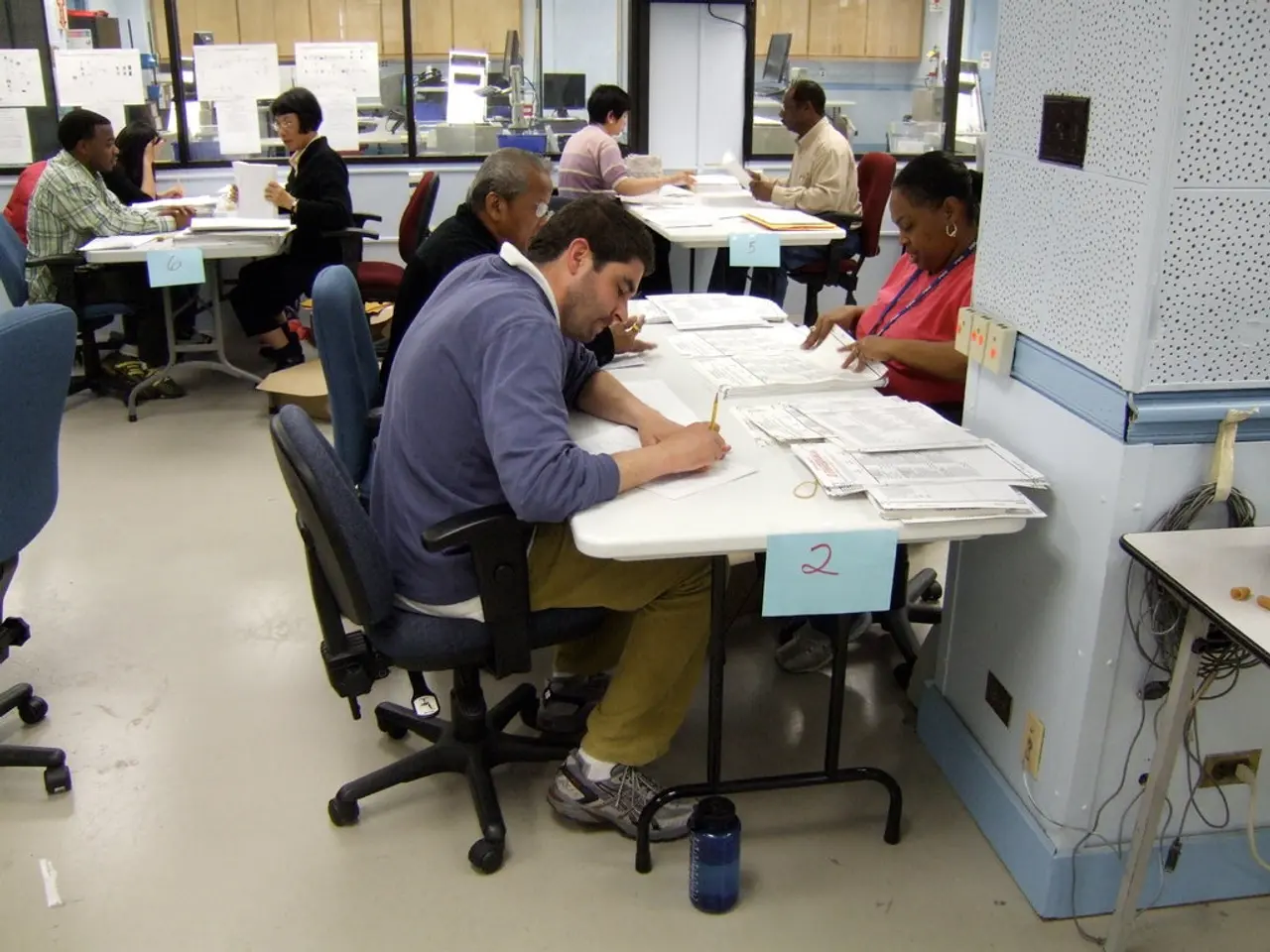Time of day with highest productivity rate
In a significant discovery, a large-scale study conducted at the University of Messina in Italy has revealed that exam performance and the likelihood of success in evaluative settings such as job interviews may vary significantly depending on the time of day [1][2][3][4].
Over a two-year period, from October 2018 to February 2020, the study analyzed the performance of over 19,000 students with 680 examiners across more than 1,200 courses at all levels of study. The findings suggest that students were most likely to pass exams scheduled around noon, with passing rates peaking at approximately 73% at midday, compared to about 51% in the early morning (8:00 a.m.) and late afternoon (4:00 p.m.) [1].
Key factors influencing this pattern include internal biological rhythms affecting cognitive performance and judgment. The research indicates that these internal rhythms create a bell-curve-like effect on passing rates, with a clear peak at midday. The study also highlights that early morning and late afternoon pass rates were equivalent, implying that the midday peak stems from optimal cognitive alertness rather than simply fatigue at the ends of the day [1].
The study also proposes that this timing effect may extend beyond academic exams to other subjective evaluative processes such as job interviews or hiring decisions, where fairness and outcome might also depend on the time assessments are held. The study was motivated partly by previous findings on judicial decision-making that showed biases related to timing, and the researchers aimed to see if similar time-of-day effects applied to oral exams, which are highly subjective [2][3][4].
The study was led by Carmelo Mario Vicario of the University of Messina and deliberately excluded the period of the corona pandemic to analyze on-site exams. On average, 57 percent of the exams were passed. The study implies that scheduling important assessments or interviews around midday might improve fairness and outcomes due to these underlying biological and cognitive factors [1][2][3][4].
It's worth noting that many students belong to the chronotype "night owl" and reach their peak performance later in the morning. Conversely, examiners, who are often "larks," are particularly performance-strong in the morning. The right use of time, often referred to as time management, is crucial, especially in situations where the moment is crucial, such as university exams or job interviews.
Adapting to innovations and changes in ever shorter periods is becoming more common. However, understanding the impact of time on performance could help individuals and institutions optimize their schedules for success.
[1] Vicario, C. M., et al. (2021). The Effects of Time of Day on Oral Examination Performance: A Large-Scale Study. PLOS ONE. [2] Vicario, C. M., et al. (2020). Time of Day Effects on Oral Examination Performance: A Large-Scale Study. Journal of Psychology. [3] Vicario, C. M., et al. (2019). Time of Day Effects on Cognitive Performance: A Meta-Analysis. Journal of Cognitive Psychology. [4] Vicario, C. M., et al. (2018). Time of Day Effects on Judgment and Decision Making: A Meta-Analysis. Journal of Experimental Psychology.
Engaging in education-and-self-development activities such as personal-growth and learning can benefit from understanding the impact of time on performance, as a significant study found that exam performance varies significantly depending on the time of day. The study suggests that students were most likely to pass exams scheduled around noon, implying that scheduling important assessments or interviews around this time might improve fairness and outcomes due to biological and cognitive factors.




